Surf Party
The following interview from November 2000 can be found on the internet at http://www.rasputins.com/manifesto/jackieD1100.html.
Jackie DeShannon's First Album
by Steve Escobar
The legendary songwriter finally has creative control, and has made the record she always wanted to make.
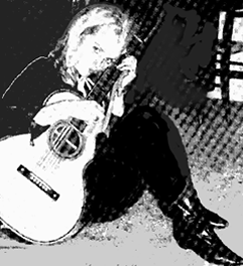 At long last, after a twenty year hiatus, Jackie DeShannon is back! And with her, she brings a new album, You Know Me, containing thirteen freshly penned songs, and a very nicely done version of Carl Wilsonís ďTraderĒ After one minute into the first track ďSteal The ThunderĒ the first thought that came to mind was that Jackieís writing and sounding better than ever! Does this lady know how to write a hook! The whole feeling you get from this album is that, much like John Lennonís Double Fantasy, here is an artist that has taken a break for awhile, and has not come back merely because she had nothing else to do. While listening to the album you hear a flood of contained creativity that Jackie has ripped the dam down from and unleashed on us all, and thatís why I believe this record sounds so fresh. I had the honor to speak with Jackie about her life, career, and the new album.
At long last, after a twenty year hiatus, Jackie DeShannon is back! And with her, she brings a new album, You Know Me, containing thirteen freshly penned songs, and a very nicely done version of Carl Wilsonís ďTraderĒ After one minute into the first track ďSteal The ThunderĒ the first thought that came to mind was that Jackieís writing and sounding better than ever! Does this lady know how to write a hook! The whole feeling you get from this album is that, much like John Lennonís Double Fantasy, here is an artist that has taken a break for awhile, and has not come back merely because she had nothing else to do. While listening to the album you hear a flood of contained creativity that Jackie has ripped the dam down from and unleashed on us all, and thatís why I believe this record sounds so fresh. I had the honor to speak with Jackie about her life, career, and the new album.
Steve Escobar: Thereís so much to ask you.
Jackie DeShannon: (Laughs). I know, I was just at the Whisky A Go Go today and I was so nostalgic because I spent a lot of hours there. (laughs) Oh boy!
SE: So where have you been the last twenty years?
JD: I can tell you a little bit about... a little, I could tell you a lot about the thing that sort of brought me out, well, hereís how it went down. Itís hysterical, my dad was listening to the radio, okay? He calls me up and sayís that thereís this DJ on the radio thatís playing ďDonít turn your back on me babe.Ē That was a song I had recorded in England with Jimmy Page playing the acoustic guitar when he was in art school. He was just you know, playing sessions at the time, but this is sort of whatís running through my head because ďDonít turn your back on me babeĒ is a very specific song. Itís not what they play on KRTH so I said to him, I said, well Dad I donít think so. Heís not well, and I said I think youíve had too much medication. (Laughs) And so I asked my brother Randy Myers who I wrote ďPut a little love in your heartĒ with, and weíve written a lot together, I said, please listen to the radio, listen to this guy Hal Lifson I think is his name, see what thatís like, so he listened. He said ďnot only does he play your music, he plays great music like all the things that we like, the classics from the 60ís,and I said, really?! So next time I listened to him, and he was using my name in his promotion for the radio show, he was playing ďI wonder should I cryĒ that Jack Nitzsche and I wrote together, and just lots of different things that that are not being played on the radio today obviously. So I called him up and I said itís Jackie DeShannon, at first he did not believe it, and we talked on the radio and he asked me if I would come down and do an interview which I did, and he said ď You know youíve gotta get in there and start recording again!Ē Iím going, uuhh, yeah, sure, sure, and he was very, very encouraging, and after hearing his show I started listening to my records again, and Iím going, gee, this isnít bad! (laughs) And so I wrote thirteen new songs for the album, and thereís one on there thatís called ďTraderĒ written by Carl Wilson, and thatís from the ďHollandĒ album...
SE: Right.
JD: And I loved it, and in fact Steve Porcaro is playing on that, and thatís it! And here we are a year later. This is all pretty overwhelming for me, I donít even believe that Iím doing it. I was standing at the Whisky and Iím standing on stage and Iím going, oh my God! This looks familiar. (laughs) And the band is starting to rehearse, I was like a duck in water. Itís been such a long time.
SE: Are you kind of blown away by so many twenty-something people stuck in 1965?
JD: Itís very interesting, I think itís so great. I think the music from that era especially really holds its own. I think that there are a lot of groups that copy it today, and they try and copy that energy, and I think itís great because it is a passionate music and itís very emotional and thereís a lot of not only energy but a lot of passion, and thatís right up my alley, because the things that I wrote for this album I worked so hard on, and for the first time in my whole career I was able to have complete control of my artistic endeavour. I wrote the songs, I was involved in co-producing it, I was there every minute, nothing happened without me. It was just a wonderful marriage, we served the music basically... it starts with the songs, as you well know, and Iíve been trying to write some of these songs for a very long time and they finally came out.
SE: You know, you were born in Kentucky but you donít have a hint of that accent anymore.
JD: Well just put me on the phone with someone from Kentucky ( laughs) and I go right back there. In fact my dadís there now, and I talked with my ninety year old aunt and I found myself going into the drawl. (laughs) But, I donít know, Iíve been in California so long I feel like a real California girl cause I came out here in the very early sixties...
SE: Yeah, what brought you to Smog Ville?
JD: Well, I was working with Eddie Cochran in Chicago and we were talking about where he was going next and what I was doing, and my record was just breaking there, and he said ďYou know, Iím going back to California, and you should really come out here because thatís your town!Ē And I came out not to long after that, and I started writing, and producing, and was the first woman out here to do production, and write their songs and... itís commonplace now but in my day it wasnít.
SE: Yeah, Iíd say that you were the first woman on the West Coast...
JD: Absolutely.
SE: And the East Coast had what... Carole King...
JD: Thatís correct.
SE: And Ellie Greenwich and thatís it.
JD: Thatís correct, yep. And I was here.
SE: I understand that you were also scheduled to appear on the bill of the show the Buddy Holly was flying to the night that he died.
JD: Yes, it happened this way, I was promoting a record that I had out at the time and I was visiting all the radio stations and we were driving across the country, and they often used local talent, or talent in the area to open the show for the headliners, and I was on my way to... Of course he was one of my big idols, and I was on my way to do the stage show with him, so... it was pretty heartbreaking.
SE: The show still went on though?
JD: (Sigh) Uh yeah, Iím sorry to say, with of course what was left of it. We didnít know until halfway through the show that he wasnít coming. Everybody was pretty hysterical.
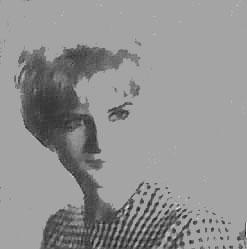 SE: So, you did that single session in England with Jimmy Page?
SE: So, you did that single session in England with Jimmy Page?
JD: Yeah, and on that session was ďDonít Turn Your Back On Me BabeĒ, ďBe Good BabyĒ, uuhh, there were a couple more. I was looking for a really good acoustic player because I was so spoiled in California I had everybody. And I said that I had to have somebody really, really great, whoís the best guy? And they said ďwell, this is a new kid whoís been playing around a lot but heís in art school and he wonít be able to make it until he gets out, and I said, well, send him over, here he was with paint on his jeans, and I just played him this thing, my little riff which I was very picky about how exact I wanted it, of course Glen Campbell and these guys could knock it out, and I had Hal Blaine, and Leon Russell, all the great guys, so I was pretty spoiled. And he played it back to me of course ten times better, (laughs) and it was perfect, it was great!
SE: I think itís time for a book!
JD: You know, I have so many things to remember itís really hard, I packed a lot in. (laughs) But maybe someday, actually I am doing a book, itís going to have all the lyrics to the songs, and Iím gonna write about how the record was made, and my feelings, and how you know, after not recording for so many years what it was like, how we picked the material, the band rehearsals, right up until today. So I think it will be interesting and Iím going to call it obviously, ďYou Know MeĒ.
SE: So when you hooked up with Jack Nitzsche, did you also hook up with the Phil Spector group?
JD: Yes, Jack Nitzsche was actually a fan of my work. He wanted to come to some of my sessions, his wife was singing background for me on some demos and I met him there. We became instant friends, very, very close friends for all these years, and when I was looking to get something going I wanted him to write a song for me, him and Sonny Bono. We were all hanging out and so they wrote ďNeedles and PinsĒ for me, and the record company did not want me to do it, and I said ďIf you donít do it then Iím not recording!Ē It was so much fun, we used to drop in on each others sessions. I remember Brian Wilson skate boarding through one of my sessions. We all just used to drop by, we thought nothing about dropping by a Rolling Stones session or Beach Boys... whoever was recording. If it was a fellow artist it was cool. Unfortunately we lost Jack Nitzsche recently. That was pretty hard and I was devastated at the loss of my dear friend.
SE: So, what was it like touring with the Beatles?
JD: Well it was great for a couple of reasons. I was, like everyone else, a very big fan, but it was something that had not been done merchandising-wise since Elvis. And it was the first time I really saw mass marketing, and every record store, everywhere you went there were four bobbing head dolls in the windows, and everything was just done to the nines! And it was really something to be on that very first tour, we did six weeks of one nighters practically. I mean we really burned across the country ! And we played from baseball parks to auditoriums. It was pretty much out of hand for the opening acts. I ended up closing the show because I was doing lot of up tempo songs obviously I did my hits but I closed with ďShoutĒ, and I got the audience up as much as anyone could. Paul used to say that when they were first working in Europe and Roy Orbison, and Gene Vincent, and all these people that they were opening for... they would boo them (laughs) and say, ďWe want Gene Vincent! We want Roy Orbison! blah, blah.Ē
SE: We want Trini Lopez!
JD: Exactly, yeah! But I think that a lot of the acts were pretty discouraged because... I always knew that they came to see the Beatles, it never bothered me, and I tried to cater to the excitement and put a set together, so Brian Epstein ended up putting me at the very end of the show. We had lots of other acts before they came on, but I sort of structured my show around what I thought would be something that the audience could live with for the moment. But for the people who didnít ... it was really, really difficult.
SE: Everyone came out and did two or three songs?
JD: Hmmm, Iím not sure, yeah, yeah, but they were all too many. (laughs) Whatever they did because nobody wanted to hear them.
SE: Well they had to fill up all that space, because the Beatles only did a twenty two minute show.
JD: Exactly. Yep! And Paul would look at his watch, make no mistake!
SE: So could you hear yourself?
JD: No. (laughs) Not really, not really. But as I said, it didnít bother me because I was grateful for the opportunity to have that kind of exposure.
SE: Did any of that ever get recorded or filmed?
JD: You know, I would love to know the answer to that question myself. Iím sure there is, I donít know where and I donít have it. But it would be really cool to... I donít know, I think probably so, I donít know how much is available, but I would think that something is.
 SE: You were somewhat responsible for, or very connected to Barry White.
SE: You were somewhat responsible for, or very connected to Barry White.
JD: Yes, Barry White was doing... I donít know , I mean, I donít really recall how we got together except that I hooked up with him right in the beginning of his career and he was one of my background singers. In fact, we did a show in Texas together. He did leave me out of his book however. I think his book starts from the top of his career (laughs), but he did the ďLaurel CanyonĒ album, and thatís Barry singing on ďThe WeightĒ and all through that album, heís on it. And Dr. John, Mac Rebenack is on piano, Russ Titleman is on acoustic guitar,
SE: Jeez.
JD: Yeah. (Laughs) I always had good people, and as I said, we took the show to Texas and a few places. The ďLaurel CanyonĒ album was ahead of its time, and that sort of goes around for me because I recorded ďDonít think twice itís all rightĒ first, and then the record company wouldnít put it out, so Peter Paul & Mary put it out. We were all runniní around the same places and I saw Bob Dylan at Town Hall in New York. That was his first concert, and I came back and asked the record company I was with to let me do a whole album of Bob Dylan songs. I said, ďHeís going to be the James Dean of rock. Heís it!Ē and they just didnít see it, and Iíve said this many times, if I had been with John Hammond at Columbia, had I been fortunate enough to be with the person who you know, signed Bruce Springsteen, and actually signed Dylan, and developed him, had I been with a visionary, I think that my career wouldíve been very different. And I know for sure why this album is so special to me, because it is the first real Jackie DeShannon album. The young women take artistic freedom for granted today. I never had it, and now I do. I was always subject to what a producer wanted including songs that I recorded. I didnít have any input at all, it just wasnít heard of. And the songs that I did have input on, and insisted on doing, most of them made the charts. The arrangements basically were just copied from previous demos Iíd already done. This time it all came together, all those tears, and all that came out on this record. And Iím extremely proud of it, and I donít mind saying so. I think that what this album represents is all of Jackie in one album! As you listen to the songs, as you listen to the lyrics, itís a book, and a movie in itself. I think theyíll be surprised.
SE: Thatís great, especially after all these years of suppression and...
JD: Yeah, (laughs) exactly!
SE: And after having to deal with all these forty something year old guys at Liberty in their white shirts, and their pocket protectors running the Rock and Roll division...
JD: (Laughs) Iím so happy about this, the lyrics are inside the booklet, and I hope you get a chance, a few minutes to take a look at them. I think youíll see a lot of the tracks of my tears as they say.
SE: Did you use any of the veteran musicians from the sixties on the album?
JD: No, I wanted a band that would work with me, and that would really be emotionally into the material, and if it took two days to get a song, it took two days. I mean, we didnít put a time limit on it, nor was there anyone pressuring the band, and no one was around. It was a very tight little group. I wanted it to be a unit not just singer and a band. I wanted them to be a crucial part of the music and understand it on that level so that we served the song.
SE: So you kind of gave them as much freedom as...
JD: Exactly! All the freedom I always wanted and never had, and itís so special because of that, and they would come in and say, ďGee, you know, how much time do we have?, and weíre spending a long time...Ē I said ďDonít worry about it. Weíre gonna do it until we get it right. Itís not important. Whatís important is what you think. Are you doing your best? Is that your contribution to the record, to the song?Ē Wow! They were just totally stunned. I had it set up almost like shooting a movie in the sense that there was no one allowed on the set. And theyíd come in and theyíd listen and theyíd make their corrections, and Iíd make mine, and it was just a very closed set.
SE: Well Iím glad that youíre back with us again.
JD: Well, itís so sweet of you, and thank you for asking such caring and sensitive questions. I really appreciate that.
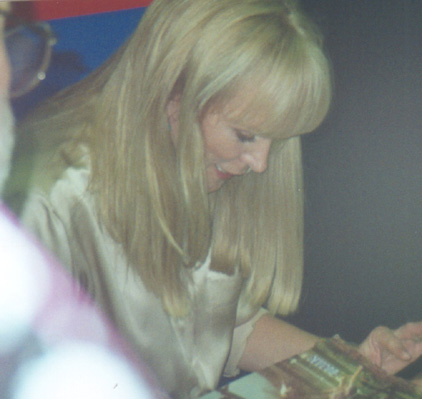 SE: Well, Iím sure that thereís about three hundred and forty two more questions I could ask you...
SE: Well, Iím sure that thereís about three hundred and forty two more questions I could ask you...
JD: (Laughs) Well, Iím hoping to be coming up to your area soon. Weíre working on that really hard, but I have to look at the big picture, and the big picture is that I havenít been out there in a long time.
SE: There is a whole new generation that knows who you are now.
JD: You think so?
SE: I know so.
JD: Ohh, well youíve made my evening, and my day! That makes me feel so good you donít know! But Iím pretty sure that weíre going to get up there one way or the other!
SE: Well, thanks for your time...
JD: Well thank you, youíve just been a doll to talk to. Iíve enjoyed it very, very much. And itís kind of overwhelming. Itís so nice to hear such positive feedback, and excitement about the record, and that I am doing something, and itís just wonderful! And Iíll be looking forward to seeing you when we come up.
Please click below for the index page to this issue.
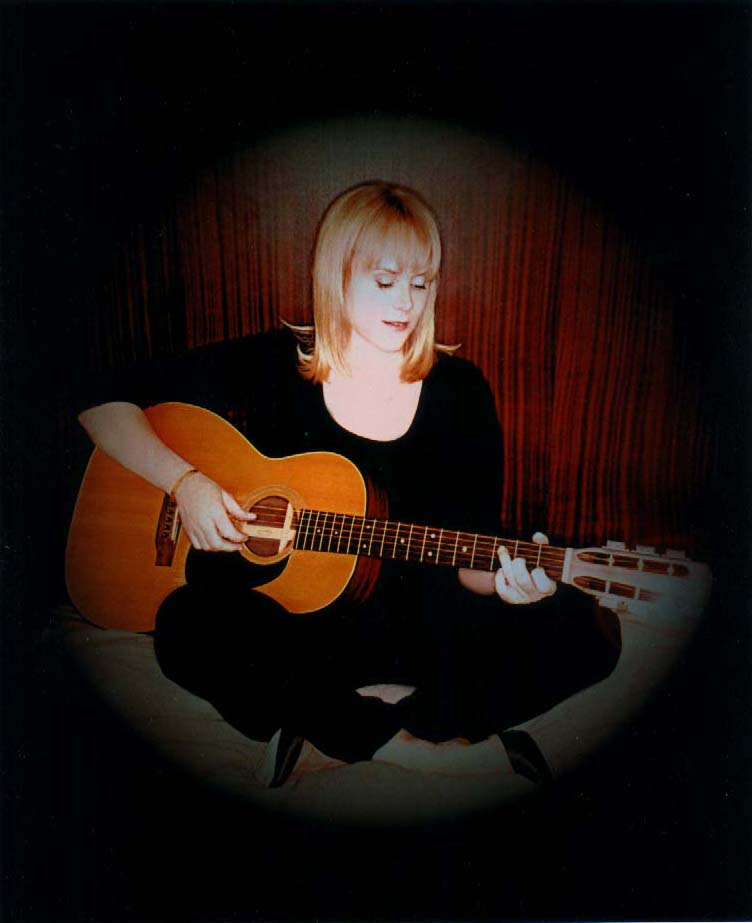
Click on Jackie to return to page one.
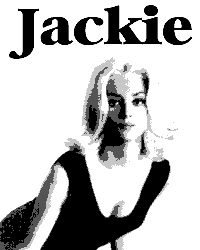
 At long last, after a twenty year hiatus, Jackie DeShannon is back! And with her, she brings a new album, You Know Me, containing thirteen freshly penned songs, and a very nicely done version of Carl Wilsonís ďTraderĒ After one minute into the first track ďSteal The ThunderĒ the first thought that came to mind was that Jackieís writing and sounding better than ever! Does this lady know how to write a hook! The whole feeling you get from this album is that, much like John Lennonís Double Fantasy, here is an artist that has taken a break for awhile, and has not come back merely because she had nothing else to do. While listening to the album you hear a flood of contained creativity that Jackie has ripped the dam down from and unleashed on us all, and thatís why I believe this record sounds so fresh. I had the honor to speak with Jackie about her life, career, and the new album.
At long last, after a twenty year hiatus, Jackie DeShannon is back! And with her, she brings a new album, You Know Me, containing thirteen freshly penned songs, and a very nicely done version of Carl Wilsonís ďTraderĒ After one minute into the first track ďSteal The ThunderĒ the first thought that came to mind was that Jackieís writing and sounding better than ever! Does this lady know how to write a hook! The whole feeling you get from this album is that, much like John Lennonís Double Fantasy, here is an artist that has taken a break for awhile, and has not come back merely because she had nothing else to do. While listening to the album you hear a flood of contained creativity that Jackie has ripped the dam down from and unleashed on us all, and thatís why I believe this record sounds so fresh. I had the honor to speak with Jackie about her life, career, and the new album.
 SE: So, you did that single session in England with Jimmy Page?
SE: So, you did that single session in England with Jimmy Page? SE: You were somewhat responsible for, or very connected to Barry White.
SE: You were somewhat responsible for, or very connected to Barry White. SE: Well, Iím sure that thereís about three hundred and forty two more questions I could ask you...
SE: Well, Iím sure that thereís about three hundred and forty two more questions I could ask you...
